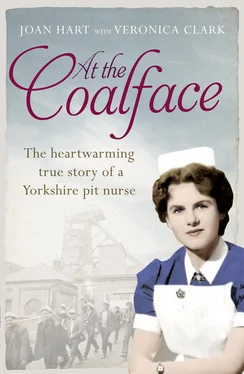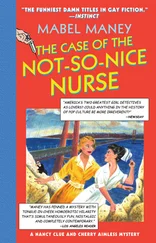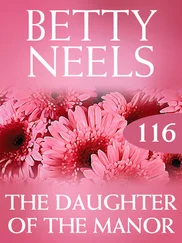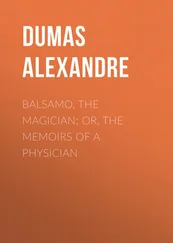My dad later told me how he’d sighed with relief while my auntie Lucy had cleaned up. Meanwhile, Mum had sobbed quietly in the bed, glad it was over. I’d entered the world on 18 May 1932 and, true to form, I’d done it in quite a style. I was born in Bentley, a little pit village situated on the outskirts of Doncaster, South Yorkshire. The village was also near the River Don, which had a habit of flooding every time we suffered a heavy bout of rain, and May 1932 had been no exception. Rain it did, until floodwater had engulfed the entire village, including the residents and their terraced houses. The flooding was so severe that a boat service had to be brought in to transport the good people of Bentley in and out of the village, including the poor midwife.
Dad had been travelling to his job at Bentley Colliery in the same boat, day in, day out, for over a week. My father was a miner, but as soon as he discovered Mum was pregnant with me he took his deputy papers so he could become an overman, to bring in a better wage. Soon he’d passed his exams and moved to Brodsworth pit, where he was in charge of over 1,000 miners working the afternoon shift. Back then, Brodsworth was the biggest pit in Doncaster, employing thousands of men.
Standing at 6 feet 2 inches tall, my father was a gentle giant, but his solid stature gave him an air of authority and the men knew better than to mess with him. He had thick mousy-brown hair and he was incredibly handsome. My mother, on the other hand, was small and attractive, with natural red hair, which I’d inherited. She also saw herself as quite the little lady. But with a fractious baby and a house that constantly flooded, Mum was at her wits’ end and threatened to drown me in the River Don just to shut me up, so Dad found us another house in a village called Woodlands. With a father in a good job and a stay-at-home mum, in many ways my life was idyllic. I was followed by a brother, Tony, just seven years later. Tony was a real screamer. One day, Mum, who was frazzled through lack of sleep, accidentally dropped his baby bottle. Back then, bottles were banana shaped with big ugly rubber teats at each end. They were also made of glass, so Tony’s bottle smashed to smithereens as soon as it hit the floor.
‘No!’ she cried as she looked at the scattered pieces of glass.
Exasperated, she opened up her purse, handed me some pennies and told me to go straight to the chemist to buy another so she could feed the baby. The only problem was that, although it was April, it was bitterly cold and it’d been snowing heavily all week. The 10-minute walk to the village shop took me almost half an hour as I battled knee-deep through the snow, both there and back. Tony was a typical boy, and as long as he got fed he was happy. Our sister Ann was born three years later, so, as the eldest, I constantly ran errands for Mum. Every couple of days I’d be given enough money to buy a block of fresh yeast from the local baker. I loved the smell of the bakery, but more than that, I loved the taste of fresh yeast. The yeast looked pretty unappetising in a grey square lump, but curiosity made me crumble the edge of a corner off it one day. As soon as I put it inside my mouth it started to foam and I was hooked.
‘Mmmm, lovely,’ I sighed, breaking off another piece and hoping my mother wouldn’t notice.
All my friends preferred sweets but I loved to nibble yeast. After a while, though, the crumbled block raised suspicion. Mum twigged what I was doing and forbade me to eat it ever again.
‘It’ll upset your stomach!’ she snapped, but I didn’t care.
As we grew, Mother settled into her role as the lady of the house. Dad doted on her and bought her everything her heart desired, and back then it desired a washing machine. In fact, it was such a coveted piece of machinery that we were the first family in Woodlands to have one. It was pretty basic by today’s standards – a metal tub with a lid and a handle on top, which you moved backwards and forwards to create the ‘wash’. But in Woodlands it was the height of sophistication, so much so that all our neighbours and their children crowded round our kitchen just to see it in action. Mum duly obliged, blinding them all with the marvels of modern science.
‘Oh, you’re so lucky, Ellen; I wish my husband would buy me one of them,’ a neighbour cooed.
As she twisted the washing-machine handle back and forth we heard a swishing sound from within the tub and my friends were mesmerised.
‘Oooh, can you hear that?’ one cried. ‘It sounds just like the waves of the sea!’
Mum lifted her head regally and smiled. She knew women in the village envied her with her handsome husband, three children and a brand new washing machine. However, unbeknownst to us, she had a secret – a yearning to return to her old life. Before she’d met Dad she’d worked as a barmaid at a pub on Fleet Street, London. The bar was always a bustling hive of activity, with journalists all hungry for the next big scoop. Mum loved everything about it – the buzz, the excitement and the fast pace of life. So, when she found herself stuck with three kids in the outskirts of a town in South Yorkshire, she wondered what might have been if she’d not married a miner. My parents had met quite by chance. Originally from Stafford, Mum had been in Doncaster visiting her brother when she landed a temporary job as a cashier on the reception of the local swimming baths. My father, Harry Smith, soon caught her eye. A few dates were followed by an engagement and ultimately marriage, but Mum soon felt trapped. Shortly after Ann was born, a group of her friends travelled up to Yorkshire to visit. I remember watching her eyes mist over as they spoke of London and past acquaintances.
‘You’ll have to come back and visit, Ellen. Everyone misses you. They all ask after you.’
‘Really?’ Mum gasped, her eyes lighting up. Little did we know then that she was already in the tunnel clawing her way towards a new life – one without us.
Weeks later, I’d wandered downstairs in my nightgown. My eyes were still blurry from sleep but I’d heard a noise and I’d gone to investigate. As I padded barefoot down the stairs I could hardly believe the sight that greeted me. It was my father. He was bent over double, sat in a chair in the front room, sobbing his heart out. It was a shock because my father was a strong man and I’d never seen him cry before. I knew something dreadful had happened. I automatically ran over to him and wrapped my arms around his neck, but it was no good; there was nothing I could say or do to make it better.
‘She’s gone, Joan,’ he blurted out in between deep sobs. I pulled away from him with a puzzled look on my face.
Who’s gone? What on earth was he talking about?
‘It’s your mother. She’s gone and left me. She’s left us all. She’s packed up her things and gone back to London.’
I shook my head in disbelief. Surely he’d got it wrong? There had to be some kind of mistake. Mum wouldn’t just pack a bag and leave us behind without a word. Ann was still a baby and a mother wouldn’t leave her baby!
‘Maybe she’ll come home?’ I whispered hopefully.
Dad shook his head. ‘No, it’s over, Joan. She’s gone and she’s never coming back.’
That night I blinked back the tears and wondered how Mum could be so heartless to just abandon us. She hadn’t even bothered to say goodbye. But I was the eldest and I knew I could help my father out with the little ones, so that’s what I decided I would do. Dad needed me to be strong, so I would be. I’d take as long as necessary off school so he could keep his job, go to work and bring in a wage to feed and clothe us all. I was 13 years old, going on 14. A few months earlier I’d joined the St John Ambulance Brigade as a young cadet, so I knew a little bit about first aid.
Читать дальше












